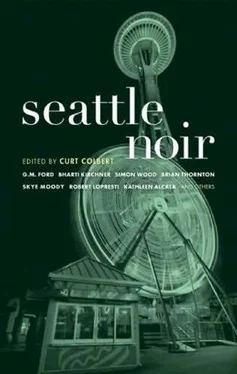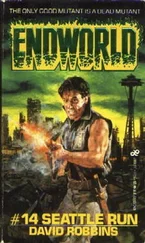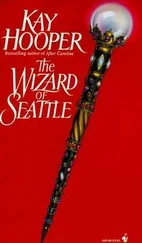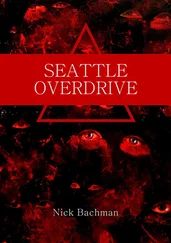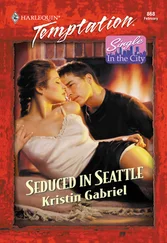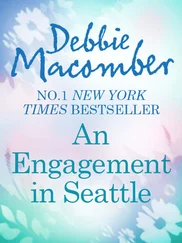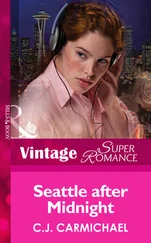“Come,” said the woman in control of Mel’s destiny, “let’s go indoors and decide on a price for this sweet little Dahl house. I think we should put an offer on the Pierce-Arrow estate, don’t you?”
SHERLOCK’S OPERABY LOU KEMP
Waterfront
It was a quixotic message carved into the side of one of his cows that drew Sherlock Holmes from his farm in Sussex, England to Seattle. The cow tended to move during the carving, so I had removed its head. The carving read: Jacob Moriarity.
I’d rigged the cow to explode upon examination, but having faith in Mr. Holmes, I knew he’d not only survive, but would eventually dissect the cow to find a somewhat wet edition of the Seattle Daily News .
Of the several newsagents I had perused in America, the Seattle Daily News possessed the most colorful attention to lurid details.
Within the pages there appeared pictures of bewildered policemen and well-to-do couples dressed in morbidity and curiosity. The over-bright exposures of the corpses provided a nice touch. Given both the allusions to the supernatural and the country’s fascination with Ouija boards and charlatans, I thought the piece more than worthy.
Confederate Colonel Seeks Revenge!
Seattle police are urging the good citizens of the city to stay indoors after dark. A killer, with a more voracious appetite than this writer’s Aunt Cecile, has been dining, quite literally, on the citizens of Seattle. No one is saying so officially, but several witnesses report seeing a ghostly figure, dressed in full Confederate uniform, fleeing the alleyway behind John McMaster’s store on Oak. A partly devoured body was found there the next morning by Oliver Prindle in his disreputable milk wagon. On the evening of February 4, a similar occurrence was reported, nearly a mile away on 1st Street behind the livery stables. Again, the Confederate ghost was observed hiding like a dog in the shadows. The body found there wasn’t whole either; it was missing both legs! From what your trusty reporter has discovered, similar murders occurred earlier in the year. But we, The Public, were not informed of these heinous crimes by our city policemen.
What do you suppose Mr. Sherlock Holmes did after drying off the article and reading it? I imagine he clamped his teeth around his pipe stem, nearly biting it in two. Coarse language would have been on the tip of his tongue, but being the Victorian gentleman, I assume he refrained. The name Moriarity was enough to ruin his digestion for days. Not to mention the cow’s.
But to business. Within a day, he would have used his dunces at Scotland Yard to gather information on the Seattle killings. He would have heard of the useless efforts to catch the killer. How many policemen would enjoy chasing fanatical ghosts? One in ten? Three in fifty?
Certainly within the next two days he assembled various disguises, acquired a quantity of cocaine for the road, and headed off to the docks in Liverpool. Once there, he would have boarded a ship bound for New York. He doubtless inquired about recent departures for America, and then spent an inordinate amount of time in his cabin pouring over the manifests of other ships. He also would have brought along all his files on John Moriarity, his arch enemy. To be sure: in some dark and filthy corner of his mind he could admit to himself his crimes! He had pushed my brother over the Reichenbach Falls to his death (it was not suicide, Mr. Holmes!).
The celebrated sleuth would then have turned his attention to the other family members.
Would there be a photograph of me? Perhaps the American authorities in Boston (that hellhole) could find one. But the best likeness could be found in Moriarity’s effects, if Sherlock Holmes cared to investigate. He would hear of my early genius (a doctor by the age of twenty) and the jealous comments concerning my experiments. The mystery of my public disappearance should tantalize him like the scent of an unseen wisp of tobacco.
Finally, on a stormy day in March 1889, the afternoon train steamed into the station on Railroad Avenue, bearing confidence men, Bible-thumping preachers, prostitutes, and Mr. Sherlock Holmes.
I almost missed him. For years, I had been aware of his finesse at disguise and mimicry. Once, I’d seen him masquerade as a woman, albeit a rotund woman. And I’d of course heard of his famous frolic of impersonating a dance hall performer. Sometimes I wish I’d spent a more active role in tracking the man. But back to the story-I will try to avoid further digressions.
Propped against the wall just to the right of the ticket counter, I held the Daily News in front of my face. Like one of the casualties of the recent Indian wars of the West, I appeared to be missing a leg and the will to live. Occasionally I would groan to demonstrate my pain. A tin cup before me awaited donations.
Thin slits in the paper, between an advertisement for Murberger’s Hair Oil and an anatomically incorrect article on gout, allowed me to track Mr. Holmes as he meticulously made his way across the crowded boards toward the street. My, what an impressive disguise. I whistled an aria under my breath, ascending and descending in minor keys. Celebration, celebration! The cymbals clamored and the violins rejoiced. My prey passed by so close, I could have gripped his ankle. While the music whispered within me, I admired his disguise.
In a bushy white wig and matching Mark Twain eyebrows, Holmes shuffled along tapping a gold-tipped cane from side to side. He peered through thick spectacles as if examining the ground for ants.
Music, sweet music. There, he has bought a newspaper.
I crawled around the corner of the building. To the consternation of several prim citizens, I reversed my coat and put both legs into their respective pant legs, then hurried to the street. Following Mr. Sherlock Holmes to his new lodgings would be exquisite. I brought him here, after all.
As I strode by, Holmes tucked the newspaper under his arm. The headline blared: Prohibitionist Mary Jones Cartright Latest Cannibal Victim!
Holmes hailed a cab. I faded into the crowd and watched until his carriage rounded the next corner.
Would he read of last evening first? A most logical killing it was.
Insanity and music. How many times have I heard that refrain?
Music is a rainbow of color born of undeniable honesty. Have you ever bathed in a melody that caressed your senses until your skin tingled and you forgot to breathe? The music would release you, each tone fluttering, alive. The notes would bow, complimenting each other, joining in a blood tie of temporary harmony. In playful ecstasy or destructively lyrical, the notes have substance. Whenever the music demands, I obey.
It rained heavily that night, drenching me in anticipation. The raindrops fell like bullets in a fast staccato, drowning out the boulevard traffic. But in the alley behind the Orpheum Theatre, the music could still be heard.
Minor keys bled aloud, speaking of human misery. Each time the notes would tremble and wail, I felt their pain, always connecting, never holding.
The air held a winter chill that seemed alive in its own right. I leaned against the dirty wall and waited. Steam rose from the heating grates. Rats with hot eyes scurried for dry places while the blues wallowed in the darkness, asking me to stop the pain.
The woman entered the alley like a cat sniffing cream. Her steps hesitant, she drew closer. When she saw me, the caution vanished. Mary Jones Cartright, angel to the downtrodden, had spent years working with the whores and demented relics of the war. The music lamented with impatience. Soon, she stood before me smelling faintly of roses.
Without a word, I obeyed, thrusting the knife upwards, carefully avoiding the kidneys and liver. Drink had never passed her pristine lips.
Читать дальше
